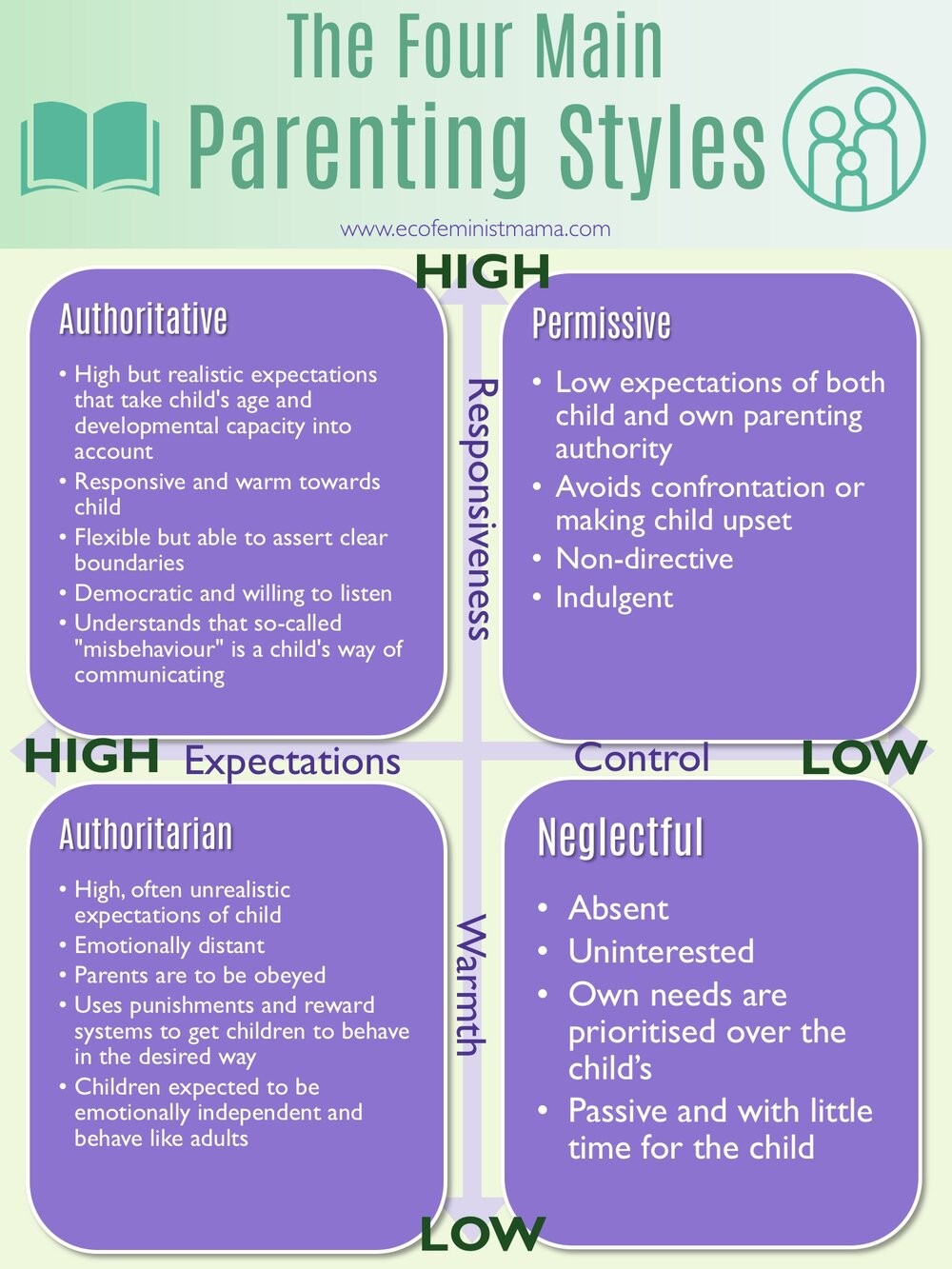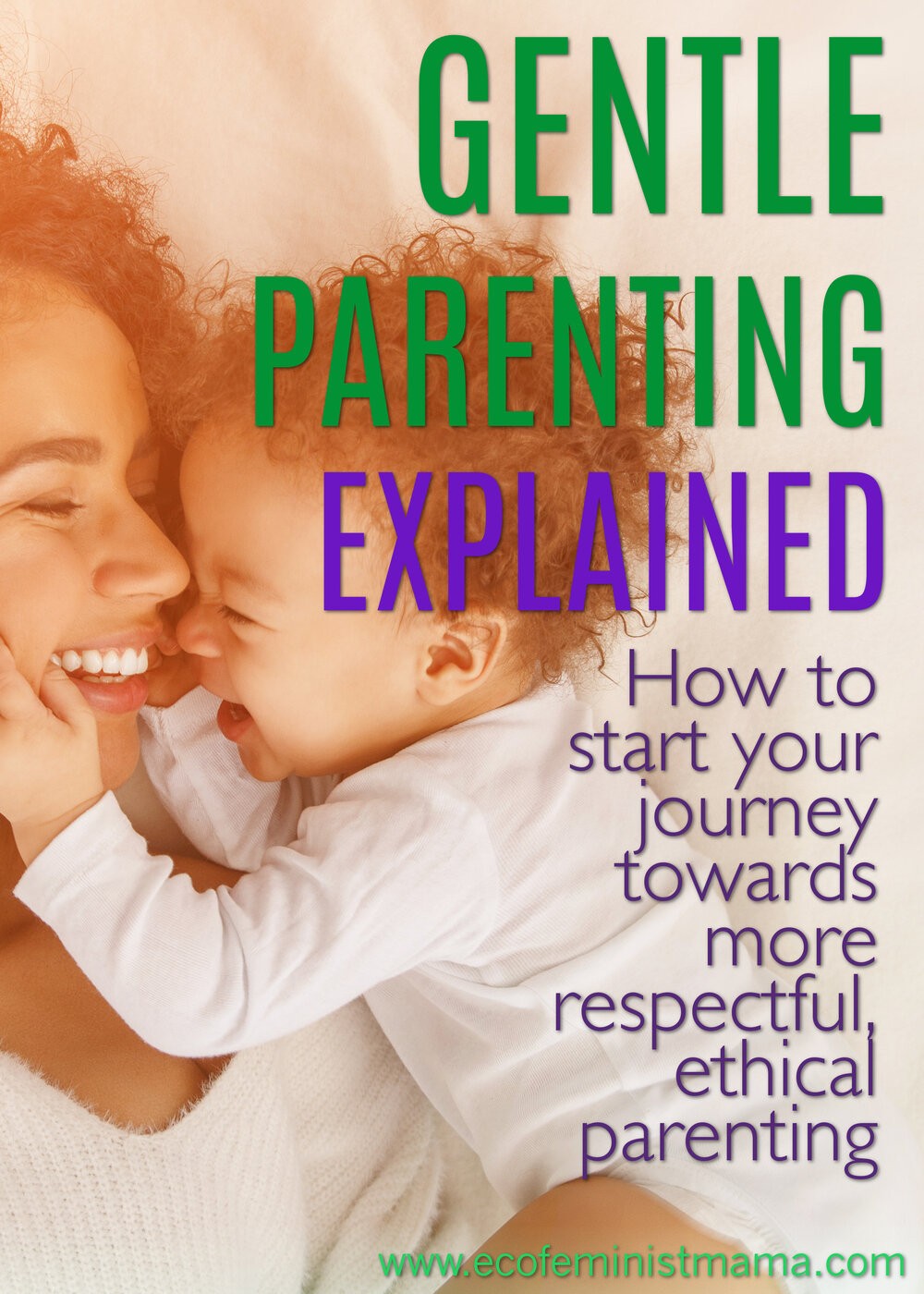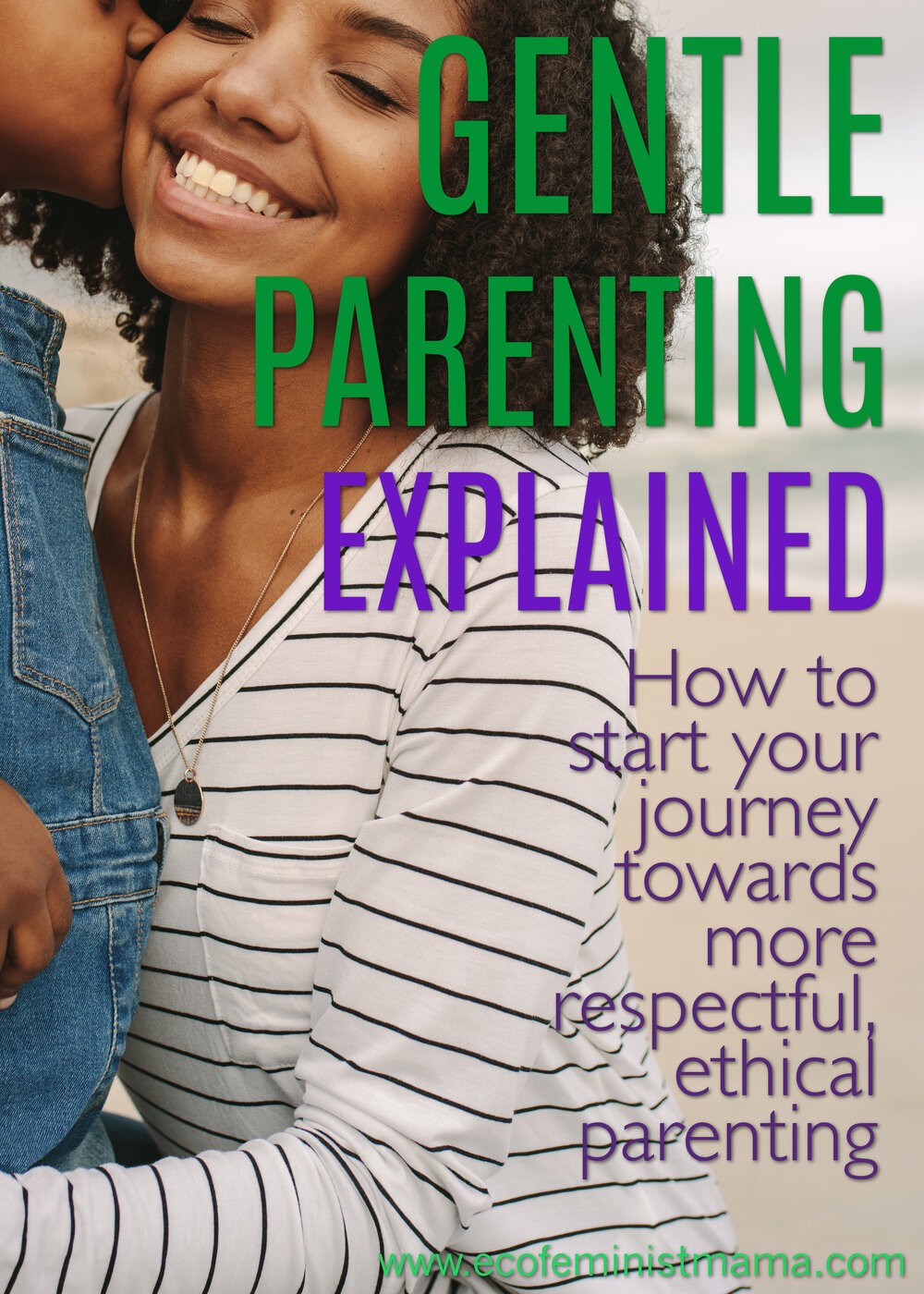Gentle parenting is one approach to raising children that seems to be becoming more and more popular every day. But parenting didn’t always used to be a verb. People just used to be parents without really thinking very hard about it.
In the Victorian era there was a shift towards thinking about child-rearing as a science. As we moved into the 20th century, we started to see an explosion of the word “parenting” as a verb. A multitude of styles of parenting started to go with it.
But what is gentle parenting? How does it work, how does it differ to other styles of parenting? Should you start using it with your own children? Let’s take a look at what gentle parenting means to find out the answers.
Table of Contents
- What are the four parenting styles?
- What is gentle parenting?
- Does gentle parenting work?
- Does gentle parenting mean no discipline?
- How do you discipline with gentle parenting?
- When can you start gentle parenting?
- 10 gentle parenting books you need on your shelves
- 10 gentle parenting instagram accounts you need to follow
- 5 gentle parenting facebook groups you need to join
- 8 gentle parenting podcasts you need to subscribe to
BABY! This is a reusable block, so whatever edits you make in it will apply everywhere it is used. If you want to remove this disclaimer from a post then be careful to delete the parent block (type ‘Reusable Block’ – icon is lego brick), and not to delete the group, image and/or the paragraph blocks (cos then they’ll be deleted from every instance of the reusable block).
Disclaimer: This post contains ethical affiliate links that I genuinely recommend. I may receive a small percentage of any purchases you make as a result of clicking those links. This comes at no extra cost to you and helps me to run this site. Read my full disclosure
What are the four parenting styles?
Research by Diana Baumrind in 1966, expanded upon by Maccoby and Martin in 1983, identified four main types of parenting methods. Different researchers name them slightly differently but they can be categorised as:
Authoritarian
Permissive
Neglectful
Authoritative
Authoritarian parenting
This is the parenting style arguably most prevalent in mainstream society. So-called “tiger parents” fall into this category. It has been passed down from generation to generation since Victorian and Edwardian times. It comes from a mindset of children needing harsh discipline in order to become respectable citizens.
- High, often unrealistic expectations of child
- Emotionally distant
- Parents are to be obeyed
- Uses punishments and reward systems to get children to behave in the desired way
- Children expected to be emotionally independent and behave like adults
Authoritarian parents are low in warmth and responsiveness towards their children. They expect more independence and emotional and developmental capacity than their children are really capable of. In other words, authoritarian parents expect the same behaviours and understanding from children that they do from adults.
They are also big on punishment systems (and the counterpart, rewards systems) including things like time-out and the naughty step. At the most extreme end of authoritarian parenting lies physical punishment such as smacking or spanking.
Permissive parenting
Unlike their authoritarian counterparts, parents who are permissive are generally very warm and responsive to their children. However, they have either inconsistent or non-existent boundaries. They regularly indulge the child’s wishes, usually out of fear of upsetting them.
- Low expectations of both child and own parenting authority
- Avoids confrontation or making child upset
- Non-directive
- Indulgent
These parents have few, if any boundaries with their children. The boundaries they do attempt to set quickly fall apart as soon as the child challenges them. “Yes darling, whatever if you want” is the mantra of the permissive parent.
Children of permissive parents grow up emotionally secure due to the warmth and emotional responsiveness they receive. However they can be impulsive, have a sense of entitlement, and become problematic when expected to conform to societal norms.
Neglectful parenting
Neglectful parents are fairly self explanatory. They essentially leave their children to it and show little interest in participating in their children’s lives.
- Absent
- Uninterested
- Own needs are prioritised over the child’s
- Passive and with little time for the child
They show little to no warmth or responsiveness towards their child, neither do they attempt to instill boundaries or discipline. Often these parents experience difficulties such as mental health issues, financial stress, or alcohol or drug dependency.
Children with neglectful and disengaged parents generally experience a range of social, psychological, emotional and physical difficulties growing up. They are associated with some of the worst long-term outcomes.
Authoritative parenting
This sounds similar but is not to be confused with authoritarian parenting. Authoritative parenting is seen by child development specialists as being the most successful approach. It is the one most likely to result in positive outcomes for both children and parents.
- High but realistic expectations that take child’s age and developmental capacity into account
- Responsive and warm towards child
- Flexible but able to assert clear boundaries
- Democratic and willing to listen
- Understands that so-called “misbehaviour” is a child’s way of communicating
- Teaches children about the logical consequences of their behavious
Authoritative parenting is high in warmth and responsiveness, but also holds high expectations. Instead of having inappropriately high standards for the children, however, these are high expectations of the parent’s ability. Authoritative parents trust themselves to handle situations with confidence and authority, whilst having age-appropriate expectations of the child. The authoritative parent recognises which stage of development their child is at and adjusts their expectations accordingly.
In contrast to permissive parents, authoritative parents will consciously and consistently implement reasonable boundaries and age-appropriate discipline. They aim to help the child learn the logical consequences of their behaviour and take responsibility for their actions.
The authoritative parent empathises with how their child feels. They seek to help them overcome their developmental struggles while being good role models for the behaviour they wish to see in their child.
What is gentle parenting?
Gentle parenting places an emphasis on respect, understanding and empathy for children. In contrast to mainstream parenting, gentle parenting uses respectful discipline methods instead of harsh punishments. Gentle parents also aim to use child development knowledge to support their techniques.
The term “gentle parenting” was first used by Sarah Ockwell-Smith, who has written 13 books including The Gentle Parenting Book. Gentle parenting falls under the category of authoritative parenting as outlined above.
The gentle parenting umbrella also emcompases Attachment Parenting, which focuses on creating secure attachment from birth onwards. Some people use different terms such as positive, respectful or responsive parenting.
For the purposes of this blog I’m going to use the term “gentle parenting” to describe a broad approach. Bear in mind that there may be subtleties in the differences between some specific gentle parenting philosophies though. For example, Attachment Parenting is a form of gentle parenting but not all gentle parenting is Attachment Parenting.
There are resources further below to help you go further in depth and learn more about the gentle parenting world.
What are the benefits of gentle parenting?
There is strong evidence that warm, responsive parenting is the most successful when looking at child outcomes. Overall, in gentle parenting households you’ll find:
- That gentle parents are happier
- There is less conflict
- Children rate higher in terms of intelligence, emotional self-regulation, self-esteem and brain development
- Children grow up to have healthier relationships with their parents and other people.
If that’s not enough to convert you, I don’t know what is!
Does gentle parenting work?
This is a question I hear a lot from people who have just started to learn about gentle parenting: “Does it actually WORK?”
I think the first thing that is important to establish is, what exactly do you mean by “work”? Do you mean “Does it work to bring up psychologically and emotionally stable, self-assured, resilient, awesome kids?” then YES, it absolutely does work!
What I find a lot of parents mean though when they ask “Does it work?” is, “Will it make my child behave the way I want them to?”
Gentle parenting groups are littered with frustrated posts about toddlers who keep on doing their dastardly toddler deeds even after their loving parents followed ALL the gentle parenting “rules”!
Gentle parenting does not seek compliance and “good” behaviour from the child as the main goal. That’s a mainstream, authoritarian approach to parenting practices. The purpose of a reward chart, for example, is to get desirable behaviours from the child in the moment.
The goals of gentle parenting are not complicity in a given moment. It’s not about stopping a toddler temper tantrum or switching off sassy teenage backchat. The goals are long-term ambitions and helping children learn. Ultimately we are aiming for emotional security, resilience and healthy child-parent relationships. In the long-term, we hope to raise an adult who can function well psychologically and emotionally. To do this, gentle parents allow and support all emotions in their children.
Does gentle parenting mean no discipline?
NO! The word “discipline” comes from the root word “to teach”. Gentle parents work very hard to teach their children and that includes teaching them the logical consequences of their actions.
Gentle parenting means understanding that children have different experiences to us, and being responsive to their needs. By doing this we can have happier, calmer and more peaceful relationships with them. All without falling into the traps of indulgent, permissive parenting.
When people hear about or encounter gentle parenting, they often assume it’s permissive parenting. They assume the children run riot, lack any discipline and that gentle parenting is ridiculous. Nothing could be further from the truth.
Gentle parents still have boundaries and we stick to them. We just do so consistently and for a good reason, not just because we’re the “boss” and we said so. Then we support our children through their upset, anger or frustration at having boundaries enforced. This way we can make sure our children stay safe, be warm and nurturing, and still maintain age-appropriate boundaries.
How do you discipline with gentle parenting?
I won’t go into all the gentle discipline approaches as I want to point you towards other resources that go in-depth. But if you want to know how to discipline with gentle parenting, here are the basics of how it works:
Keep everybody safe
This is the first step in any situation involving small children. It is your job to keep your children, yourself and others around you safe in any given moment.
Safety trumps gentleness too. So if your toddler is about to run into the road, hit someone or cause serious harm, stop them immediately.
How you respond afterwards is what makes the difference but in the immediate term, a simple, matter-of-fact “Stop! I won’t let you do that” is clear and concise enough for them to understand.
Examine your expectations
The next step iis to ask yourself whether your expectations are appropriate in the context of your child’s developmental capacity.
Is the behaviour you are expecting from your child reasonable for their age? Is it possible that the behaviour they are exhibiting is simply all they are capable of?
One thing that is vital to understand about small children is that their underdeveloped brains can’t think logically.
You don’t expect a baby or toddler to be able to drive a car, right? Obviously they can’t due to their lack of physical development. You also can’t expect them to think logically like an adult due to their lack of brain development.
Small children are literally ALL instinct and emotion. They possess no logic, until at least 4 years old when the prefrontal cortex begins to develop.
Even then, the prefrontal cortex develops slowly. It then stops and stalls during the teenage years due to an influx of hormones. After the teen years, it kicks off again before finally finishing its development in the early, mid or even late-twenties.
Anyone expecting their toddler to sit down and do some serious critical thinking is off by at least 20 years! This understanding is crucial to being able to effectively communicate with (and therefore discipline) your child.
Empathise with your child
This comes straight off the back of point two. Once you have considered where your child is in their development it’s possible to understand their behaviour better.
That’s not to say the behaviour is acceptable, safe or appropriate. But if you can empathise with them and speak your empathy, this goes a long way.
Examples of words you can use to express empathy are:
- I hear that you are feeling……angry/upset/sad/frustrated
- It’s upsetting for you when we have to leave the playground isn’t it?
- I get angry too when I have to do things I don’t want to do. Really, I know how you feel
Of course, the key here is to genuinely feel and express the empathy. This isn’t a tactic and a script to get your child to stop being upset or having an emotional outburst.
Think about it: when you’re sad, angry or frustrated about something, what do you want? I kind, supportive person making you feel heard and understood. It doesn’t magically stop you feeling your feelings. But it’s much better than them putting you on a “naughty” step and telling you to calm down!
Search for an underlying cause
Once you have dealt with a situation in the moment, it’s important to look at what’s causing the behaviour. Then you can try and resolve any issues you uncover.
For example, young children often become unsettled by big changes. Events such as moving house, parental separation, a new sibling and potty training can cause challenging behaviours. Children can’t articulate their feelings in the way (most!) adults can, so they express themselves through their behaviour. One of my favourite gentle parenting quotes is, “S/he’s not giving me a hard time – s/he’s HAVING a hard time”. Again it all comes back to empathy, which is the bedrock of gentle parenting.
There are lots of resources at the bottom of this post to help you learn specific gentle parenting discipline tools. Hopefully though you can start to see the difference in approach to more mainstream, authoritarian parenting.
When can you start gentle parenting?
Gentle parenting is an ethos. It’s a process and a way of life that we embed into our daily practices. We use these tools with a view to fulfilling our long-term parenting goals. It’s not a strategy. You can’t just pick it up and try it out until you feel like stopping because it hasn’t “worked”.
You can start to embed its principles from the moment your baby enters into the world. This is done in the way you seek to promote secure attachment and emotional bonding with them.
As they grow into toddlers and start testing boundaries, you can go deeper into gentle parenting. You will most likely discover just as much about yourself in the process at the same time. Gentle parenting also has the effect of making the parent think about their own behaviours and where they come from.
If you have been using a different parenting style and are wondering if you can switch then, yes! You absolutely can. It may be harder work if you have naturally fallen into a more authoritarian style. This is especially true if that’s how you yourself were raised.
But with time, patience, dedication and practice, you can start gentle parenting no matter the age of your child. Sarah Ockwell-Smith’s definitive Gentle Parenting Book has a whole section on switching from a different style of parenting. I very much recommend this title as a good starting point for your gentle parenting journey.
How do you start gentle parenting?
The best way to get started with gentle parenting is with the resources listed at the end of this blog. Then start to fill your social media with accounts and groups that are dedicated to the gentle parenting philosophy. That way you can begin to embed these practices in your daily life.
The other way to start is to begin noticing how you respond to your children in certain situations. Then begin to question why you are responding in that way. Are you taking their developmental capacity into account? Are you just responding the way you think parents are supposed to, or how your own parents responded to you?
Becoming mindful about the way we speak to and behave towards our children is the very first step. It’s one you can start doing right now.
Finally, I’ve created a dedicated Ethical Parenting Pinterest board. I hope this will help you begin your journey towards gentle parenting so do follow it.
10 gentle parenting books you need on your shelves
- The Gentle Discipline Book: How To Raise Cooperative, Polite & Helpful Children By Sarah Ockwell-Smith
- The Whole-Brain Child: 12 Revolutionary Strategies To Nurture Your Child’s Developing Mind By Daniel J. Siegel & Tina Payne Bryson PhD
- The Gentle Sleep Book: Gentle, No-Tears, Sleep Solutions For Parents Of Newborns To Five-Year-Olds By Sarah Ockwell-Smith
- How To Talk So Little Kids Will Listen By Joanna Faber & Julie King
- Raising A Secure Child: How Circle Of Security Parenting Can Help You Nurture Your Child’s Attachment, Emotional Resilience, And Freedom To Explore By Kent Hoffman, Glen Cooper, Bert Powell & Christine M. Benton
- The Danish Way Of Parenting: What The Happiest People In The World Know About Raising Confident, Capable Kids By Jessica Joelle Alexander & Iben Dissing Sandahl
- Unconditional Parenting: Moving From Rewards & Punishment To Love & Reason By Alfie Kohn
- Beyond The Sling By Mayim Bialik PhD
- The Baby Book: Everything You Need To Know About Your Baby From Birth To Age Two By Dr William Sears, Martha Sears R.N, Dr Robert Sears & Dr James Sears
- Discipline Without Damage: How to Get Your Kids to Behave Without Messing Them Up by Vaness Lapointe
10 gentle parenting instagram accounts you need to follow
- Sarah Ockwell-Smith
- Raised Good
- Dr Becky at Good Inside
- Kaitlin Klimmer
- Mother Truths
- Dr Genevieve
- The Gentle Mamma
- Pinky McKay
- Krissy’s Couch
- Our Mama Village
5 gentle parenting facebook groups you need to join
- Gentle Parenting UK (Gentle Parents Unite if outside of UK)
- The Beyond Sleep Training Project
- Responsive Parenting Community
- Raised Good Natural Parenting
- Joyful Eating For Your Family
8 gentle parenting podcasts you need to subscribe to
- The Good Enough Mother By Dr Sophie Brock
- Good Inside By Dr Becky Kennedy
- The Mindful Mama
- The Motherkind
- Happy As A Mother
- Your Parenting Mojo
- Coffee & Cosleeping
I hope you’ve found my beginner’s guide to gentle parenting helpful.
Please let me know if you have any scenarios with your child that you’re wondering how to handle with gentle parenting. I’d love to hear from you and help with your struggles if I can!
Meanwhile, wishing you all the best in your parenting journey.





